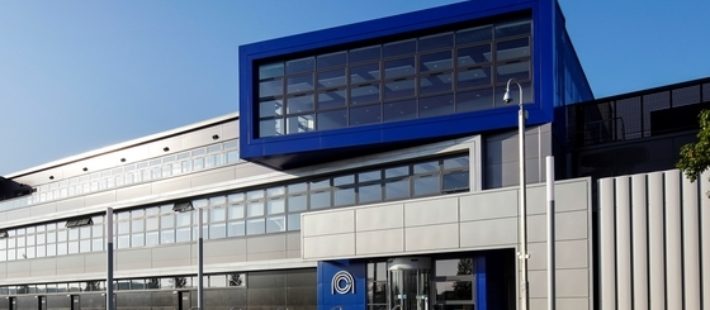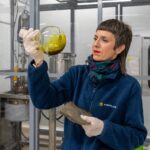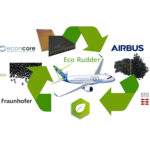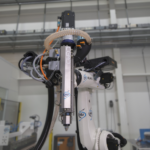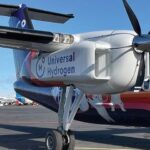The UK’s National Composites Centre (NCC) opened the doors to the latest phase of an advanced composite manufacturing facility. Part laboratory, part factory, the 9,948m2 additional venue is the result of a two-year, £36.7m research and development programme to harness the power of new digital technologies.
Demand for composites is growing as manufacturers seek to make products lighter, stronger and more durable. The global market is predicted to be worth $105.8bn in 2020 and growing at 6.5% per year. In the UK alone, the value of composites is expected to reach c. £12.5bn by 2030.
Aerospace is a significant driver of demand, with operators looking to replace ageing aircraft fleets with the latest, most fuel-efficient models. Using current, labour intensive techniques, manufacturers can only make 6 pairs of wings per month. The market requires 100. Meeting this need means radically re-thinking how we make wings – which is exactly what the National Composites Centre has done.
For the past two years, a team comprised of engineers, researchers, software architects, roboticists and textile experts have explored how digital technologies can make composites easier to design for, as well as quicker and cheaper to make. A key goal was to demonstrate that they could be a viable, mass-producible alternative to traditional metallic parts. The results of this research are 10 ground-breaking new machines which redefine the ‘state of the art’ for composite manufacturing.
Launching this new phase, Richard Oldfield, Chief Executive said: “With the most advanced manufacturing facility in Europe, we truly have an unrivalled world class capability. The investment in 10 new world-leading composites capabilities will enable us to develop the wings and engines for the aircraft of the future, work on technologies that will define the way we produce and store energy and transform the way we build infrastructure.”
The stars of the new facility are two huge industrial robots that automate the wing production process. Weighing 45 tonnes and 24 tonnes respectively, the robots measure, cut, lift and place pieces of carbon fibre fabric (‘plies’) with millimetric accuracy. They can also lay 5m wide strips of composite material, up to 20m long, in one precise movement. This could cut the number of fabric components required from c.100,000 to just 150, and reduces wing-build time from one week to one day. This has the potential to revolutionise aircraft production.
Other technologies include a giant circular Braider, the largest of its kind in Europe, which automatically weaves up to 288 individual strands of high strength carbon fibre to create hollow 3D shapes (or geometries), for products such as pipes or aircraft propellers.
The Overmoulder, meanwhile, shows how composite components can be mass-produced at rate. This would enable carmakers, for example, to use more of the technology in mainstream vehicles, making them lighter and more durable. These are key considerations given the long-term shift towards electrification and, beyond that, new models of shared ownership where cars will be expected to do vast mileages.
The NCC has also rethought how we test completed composite parts for quality control. This is currently a slow and expensive process, typically involving the destruction of the part being examined. In response, NCC engineers have commissioned two, 3 metre high robots that work in unison, either side of the component, to beam ultrasound down high-pressure water jets. The system then measures the time taken for sound to travel through the part, alerting operators to any anomalies.
The iCAP Programme was funded by the Aerospace Technology Institute, the Local Enterprise Partnership and High Value Manufacturing Catapult.
Source: NCC


